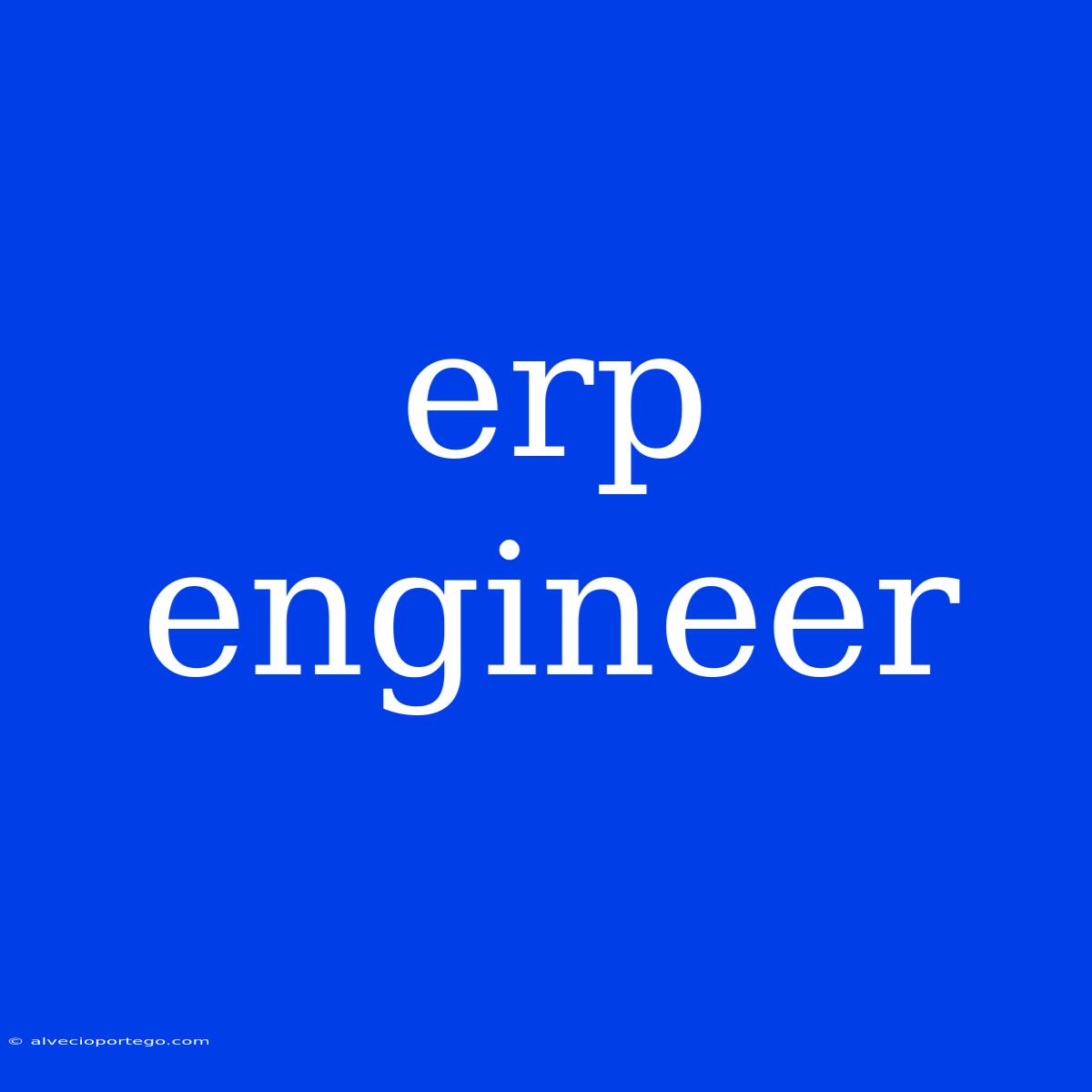The ERP Engineer: A Crucial Role in Modern Businesses
What is an ERP Engineer?
An ERP (Enterprise Resource Planning) Engineer is a specialist responsible for the implementation, maintenance, and optimization of ERP systems within an organization. These systems integrate various business processes, such as finance, human resources, supply chain management, and customer relationship management, into a single platform. ERP Engineers are crucial for ensuring the smooth operation and efficient functioning of these systems.
Key Responsibilities of an ERP Engineer:
- Implementation and Configuration: Working with stakeholders to analyze business requirements, design system configurations, and implement the ERP system.
- Customization and Integration: Adapting the ERP system to specific business needs by developing custom modules, integrating with other systems, and configuring workflows.
- Maintenance and Support: Providing ongoing support and troubleshooting to users, managing system updates, and ensuring system stability.
- Data Management: Designing and implementing data migration strategies, ensuring data integrity and accuracy, and implementing data security measures.
- Process Optimization: Identifying opportunities to optimize business processes through improved system usage and automation.
- Training and Documentation: Providing training to users on the ERP system and creating documentation for system administration and user guides.
- Troubleshooting and Problem Solving: Diagnosing and resolving technical issues, identifying performance bottlenecks, and implementing solutions.
Essential Skills and Qualifications:
- Technical Skills: Strong understanding of ERP systems and related technologies, including databases, programming languages, and cloud computing.
- Business Acumen: Ability to understand business processes and translate them into system requirements.
- Communication and Interpersonal Skills: Excellent communication skills to interact with stakeholders, users, and technical teams.
- Problem-Solving and Analytical Skills: Ability to identify and solve technical issues, analyze data, and provide innovative solutions.
- Project Management Skills: Ability to manage multiple tasks, prioritize, and meet deadlines.
Popular ERP Systems:
ERP Engineers typically specialize in one or more specific ERP systems, such as:
- SAP
- Oracle
- Microsoft Dynamics 365
- NetSuite
- Infor
Career Path for an ERP Engineer:
- Junior ERP Engineer: Entry-level role focusing on technical support and system maintenance.
- Senior ERP Engineer: More experienced role leading implementation projects, customizing systems, and providing technical expertise.
- ERP Architect: Responsible for designing and implementing complex ERP solutions, including integrations and data management.
- ERP Consultant: Provides expert advice on ERP solutions, implementation strategies, and best practices.
Conclusion:
An ERP Engineer is a valuable asset to any organization using an ERP system. Their skills and knowledge are essential for ensuring the successful implementation, maintenance, and optimization of these crucial business platforms. With the continued growth of ERP adoption, the demand for skilled and experienced ERP Engineers is expected to remain high in the coming years.

